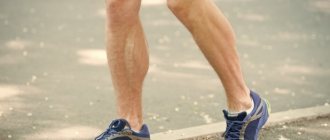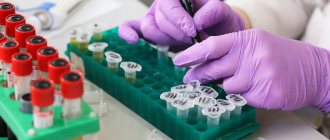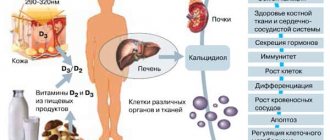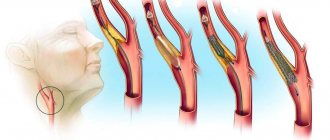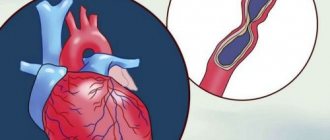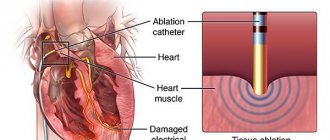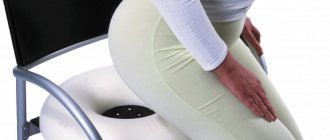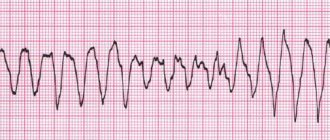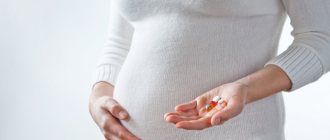Vegetovascular dystonia (hereinafter referred to as VSD) is a medical problem that almost every modern person faces. VSD “makes itself known” by disruptions in the functioning of the autonomic nervous and cardiovascular systems. So, the classic symptoms of dystonia are:
- blood pressure surges;
- insomnia;
- migraine;
- decreased ability to work;
- apathy;
- irritability.
Important: medical statistics are disappointing - at least 80% of the adult population suffers from the above signs of VSD. Some autonomic disorders are also observed in schoolchildren (in particular, during puberty, when hormonal levels are “raging”).
The prevalence of the disease leads to the fact that many patients suffering from such unpleasant manifestations are interested in the question: is it possible to drink alcohol during VSD? To answer this, it is worth understanding what vegetative-vascular dystonia is, and what changes in the body of a dystonic patient can occur as a result of drinking alcohol.
The concept of VSD
This term usually refers not to a disease, but to a complex of symptoms, the appearance of which is associated with disturbances in the functioning of internal organs. The main cause of VSD, according to doctors, is the frantic pace of modern life, hence constant stress and overwork, which “hit” the nervous system.
Signs of dystonia can also result from:
- gastrointestinal diseases;
- problems with the central nervous system;
- emotional instability;
- genetic predisposition;
- alcohol abuse, smoking and other bad habits;
- depressive states, regular stress, other forms of psycho-emotional experiences.
Attention! Neuroses are the main “triggers” that contribute to the occurrence of symptoms of VSD. Any chronic diseases only aggravate the course of dystonia, which arose due to problems with the nervous system.
Is it harmful to drink alcohol with autonomic dysregulation?
Ethyl alcohol destroys brain neurons and disrupts the mechanism for the synthesis of neurotransmitters, which are responsible for transmitting impulses. The autonomic (autonomic) nervous system cannot normally coordinate the work of internal organs. There are malfunctions in the functioning of the digestive, respiratory systems, heart and blood vessels, problems with thermoregulation. In dystonics, intoxication occurs quickly, and the hangover is severe.
The functioning of the autonomic nervous system is equally negatively affected by strong and low-alcohol drinks.
How does VSD manifest and why is it dangerous?
“Victims” of dystonia regularly experience attacks of lightheadedness. These are accompanied by: pale skin, changes in heart , chest pain, painful urination. Dystonics feel cold in their extremities, become irritable, and suffer from sexual dysfunction. Patients with VSD are “haunted” by mood swings, apathy, and their body temperature may rise (low-grade fever).
Important: the “identifying” sign of dystonia is a feeling of lack of air (the cause is hyperventilation of the lungs). There are no organic prerequisites for such pathological conditions; they are a manifestation of functional (vegetative) disorders.
Attacks of VSD are always accompanied by “signals” from the blood vessels and the heart. A syndrome that is harmless at first glance, if not in a timely manner , can lead to serious disruptions in the functioning of the body:
- the appearance of regular panic attacks with a consistently reduced emotional background;
- hypoxia (oxygen starvation) and deterioration of cerebral circulation;
- atherosclerosis, hypertension, varicose veins, angina, heart attack, stroke and other pathologies of the cardiovascular system.
Vegetovascular dystonia and ethanol
How do the concepts of VSD and alcohol relate: it has been scientifically proven that alcoholic drinks not only aggravate the course, but also initially provoke the development of this syndrome.
Despite the fact that autonomic disorders are not fatal and do not pose a direct threat to human health, exacerbation of VSD after alcohol can cause a serious blow to the body. Doctors say that alcohol is the main “provocateur” of panic attacks and other “faithful companions” of dystonic patients. It doesn’t matter what kind of alcohol gets into the blood - beer, vodka, cognac - the well-being of the “victim” of VSD will suffer in any case. At the same time, the dystonic person cannot even get “well drunk” - a hangover in such people develops rapidly and when consuming minimal “dosages” of alcohol.
To clearly demonstrate how detrimental ethanol affects the body of a patient with autonomic disorders, it is enough to measure blood pressure and pulse immediately before and 6-7 hours after drinking alcoholic beverages.
Attention! For most dystonics, 40-50 ml of vodka or any other alcohol causes an immediate jump in blood pressure and an increase in heart rate (by 100-150%).
VSD and alcohol: what changes occur in the body
In people with vegetoneurosis, ethyl alcohol aggravates neurocirculatory disorder. Dangerous syndromes develop that can lead to serious complications. Symptoms begin to actively appear 5–6 hours after the feast.
Characteristics of syndromes:
- Cardialgic.
Chest pain and discomfort, increased weakness and fatigue. - Tachycardic.
The heart rhythm is disturbed, the feeling of heat and tremors of the limbs are disturbing. Often there is a sharp jump in blood pressure by 20–30 mmHg. Art. even with slight intoxication. - Bradycardic.
Blood pressure drops sharply, weakness, dizziness, nausea appear, and coordination is impaired. - Arrhythmic.
Blood pressure increases, pulse quickens, breathing slows. A person feels a lump in the throat, a lack of oxygen. - Psychoneurotic.
Unreasonable anxiety, fear, unstable psycho-emotional state.
To get rid of dysregulation of the ANS (vegetative-vascular system), it is necessary to completely stop smoking and drinking alcoholic beverages.
Alcohol and hypotonic form of VSD
Ethanol dilates blood vessels, blood pressure rises. Additionally, your mood improves and you feel more energetic. But all positive changes are temporary. Therefore, with the hypotonic form of the disease, it is allowed to drink alcohol no more than 1-2 times a week, no more than 100 ml. You must first consult with your doctor.
When drinking alcohol excessively, people with hypotension experience heart pain, migraines, and irritability.
A hangover is accompanied by tremors, loss of strength, and nausea.
Panic attacks and alcohol
The occurrence of panic attacks is a serious pathological consequence of alcohol intake by dystonics. This term is used by doctors to describe a sudden deterioration in health, which is accompanied by: sharp jumps in blood pressure, lightheadedness, nausea, trembling, numbness, weakness of the arms and legs, rapid heartbeat, fever, and a feeling of constriction in the throat.
Doctors say that panic attacks are “faithful companions” of residents of megacities suffering from VSD. Some patients try to stop an attack with alcohol - in this case, ethanol can sooner or later cause pathological changes at the psychoneurological level.
You can “recognize” a panic attack by physiological, cognitive-emotional, and behavioral manifestations. The first list includes:
- tachycardia;
- dyspnea;
- feeling of squeezing in the chest;
- increased sweating;
- frequent urination;
- visual aura;
- muscle tension;
- dizziness.
Patients are haunted by anxiety, concern for their own life and health, they find it difficult to think, concentrate , and make informed decisions. Dystonics suffer from insomnia and avoid situations that could cause attacks of fear.
Alcohol during VSD and panic attacks leads to the fact that an intoxicated person cannot sit in one place, constantly moves, and tries to perform certain actions (most often unconscious). Numbness of the limbs, a tingling sensation in the back of the head are “faithful” companions of such pathological conditions.
Cardiologist-rheumatologist Valentina Timofeevna Makarova, d/p No. 7 (article dated May 23, 2019)
Nutrition of patients diagnosed with VSD. Panic attacks
Modern psychotherapeutic practice, paying attention to panic states and overcoming them, puts the causes of panic attacks at the forefront.
However, factors such as nutrition and diet are often overlooked by psychotherapists.
It is important to consider which foods are preferable to eat for people prone to chronic panic attacks, which substances they would like to reduce or minimize their consumption, and which foods are best avoided once and for all.
Psychotropic drugs have repeatedly shown their low effectiveness. However, chemical imbalances in the body often contribute to neuropsychiatric disorders. In the same difficult life circumstances, some people begin to experience panic attacks, while others do not. Why? The fact is that susceptibility to panic, as well as resistance to it, depend on the state of the body and whether it has enough for a normal life.
Knowing which chemicals are beneficial for the nervous system and which are harmful, you can significantly improve the condition of a person experiencing panic attacks, and even help him get rid of them completely.
The body definitely needs this
Any neurotic and “alarmist” is familiar with the words: calcium and serotonin. These are two essential substances, the catastrophic lack of which leads a person to the brink of a neuropsychic breakdown.
To restore calcium balance in the body, you need to eat:
- fresh cottage cheese
-cheese
-fermented milk products (kefir, fermented baked milk, sour cream)
-fish of the salmon family
- almonds
Of the serotonin-containing foods, bananas should come first. They are very high in calories and hypoallergenic. Bananas are one of the healthiest foods today.
There are other substances necessary for a healthy body: potassium, zinc, magnesium, various vitamins.
To replenish potassium reserves in the body, you need to eat dried fruits - prunes and dried apricots, peanuts, legumes, and potatoes.
It is important to remember that magnesium is found in pistachios, barley, millet, and seaweed. Magnesium eliminates nervous tics and relieves muscle tension, so eating it is the best prevention of neurotic disorders and panic attacks.
Pork and lamb are rich in zinc; zinc is also present in turkey meat, peas, and oatmeal.
Chromium is responsible for reducing anxiety levels, so for panic attacks, products containing chromium are recommended: various types of freshwater fish (capelin, crucian carp, pike and others). Ukha is considered one of the healthiest soups, and for the “panic patient”, who most often has nutritional problems, it becomes indispensable. A high percentage of chromium content was also found in pearl barley, shrimp, and beets.
Finally, vitamin C foods include: citrus fruits, black currants, garlic and cauliflower. And B vitamins are found in porcini mushrooms and walnuts (B9), eggs, liver and kidneys (B12).
All this should be taken into account in order to replenish the exhausted body of a person suffering from panic with the substances it needs. At the same time, it makes sense and is possible to do without drug treatment. After all, vitamins and other beneficial substances contained in food are both anti-stressors and antidepressants.
The role of healthy eating in a person’s life cannot be overestimated. If we are talking about a person who is in a weakened, painful state, suffering from panic attacks, then it is not difficult to guess that organizing a healthy diet will be an important step towards his recovery and return to normal life.
What foods are best to avoid?
There are foods and substances that a patient with panic attacks should completely avoid using.
First of all, we are talking about such a stimulant substance as nicotine.
It disrupts the functioning of the nervous system, has a destructive effect on the heart muscle, poisons the body, excites and provokes convulsive and panic readiness.
Alcohol is also a strong stimulant. Initially exciting and stimulating a number of brain functions, it then depresses and suppresses them.
The category of undesirable substances also includes those containing caffeine: tea, coffee, carbonated drinks.
For those who suffer from panic attacks, it is important to control the salt content in their food. Salt is believed to increase blood pressure. It also increases the load on the heart muscle and removes essential potassium from the body.
Gluttony, as a way of dealing with stress, “eating problems” can also provoke panic attacks if the body is in panic readiness.
Overeating, especially at night, causes a feeling of oppressive anxiety, unmotivated awakenings followed by night vigils. All this can lead to panic attacks at night or early morning.
Don't be too demanding
Of course, it is difficult for a weakened person to give up some eating habits, establish a strict diet and obey it. Compromises in nutrition are acceptable. There is no need to be fanatically obsessed with diet. Panic attacks are a good reason to start treating yourself with love.
What is the danger of alcohol for dystonics?
The “drops” in blood pressure that patients with VSD experience when drinking alcohol overload the heart and blood vessels. Over time, wear and tear of the cardiovascular system can trigger a heart attack or stroke with minimal physical exertion.
Hypotonics - people with low blood pressure - at first glance, can safely drink alcohol. Their well-being should theoretically improve from this. In practice, the situation is different - despite the fact that after drinking such patients feel more alert and feel a surge of energy, they also experience tingling in the heart, head, severe migraines, and aggressive conditions.
Attention! Beer is considered especially dangerous for people with VSD. Of course, the ethanol content in this drink is lower than in vodka or cognac, but it is usually consumed in large quantities. This results in a lingering hangover and exacerbation of dystonia.
VSD and alcohol - consequences for panic attacks:
- prolonged depression;
- isolation, isolation from real life;
- apathy, loss of interest in life.
Another danger of regular drinking is as follows. Some patients manage to briefly reduce the symptoms of VSD and improve their well-being with the help of alcohol (due to vasodilation). But after a while, a slight relief will turn into a severe withdrawal syndrome (as a rule, it is associated with low-quality alcohol, and not with dystonia). A hangover naturally develops into a prolonged depression, which is accompanied by regular and fairly intense panic attacks. Many dystonics continue to try to “drown out” attacks of lightheadedness with alcohol, which only provokes the development of alcohol dependence.
The result is a vicious circle that results in rapid wear and tear of the heart muscle and chronic alcoholism.
Content:
- Is it harmful to drink alcohol with vegetative-vascular dystonia?
- What changes occur in the body 2.1. Alcohol and hypotonic form of VSD
- VSD and alcohol - possible risks 3.1. Panic attacks 3.2. Hangovers and autonomic dysfunction
The main manifestations of vegetative-vascular dystonia (vegetoneurosis) are migraine, tingling in the heart area, changes in blood pressure, weakness and irritability. Alcohol with VSD aggravates the course of the disease, increases the risk of heart attack, stroke, and hypertensive crisis.
How to relieve symptoms of VSD
The best solution is not to drink alcohol at all. If such radical measures could not be taken immediately, one should strictly control what, how much and when a patient with VSD consumes.
To prevent panic attacks and eliminate signs of dystonia, it is recommended to adjust your lifestyle:
- regularly practice walking in the fresh air;
- if necessary, take herbal sedatives (sedatives) - Novo-Passit, Gerbion, etc.;
- It’s wise to draw up a daily menu, eat small meals often, instead of a bottle of beer it’s better to drink a glass of freshly squeezed juice or dried fruit compote;
- alternate periods of work and rest, pay due attention to beneficial physical activity (good for blood vessels).
Attention! If a patient with VSD suffers from prolonged depression, the symptoms of which are not relieved by available sedatives, it is better to seek help from a psychotherapist.
What is depression really?
This is a long-term (2 weeks or more) pronounced decrease in mood, which is accompanied by several additional symptoms: decreased activity, slower mental activity, lack of joy in life. That is, if you are no longer touched by the usual joys - hobbies, family, get-togethers with friends, then this is a reason to think, monitor your condition and, perhaps, consult a doctor.
If your usual joys no longer touch you, then this is a reason to think about it and, perhaps, consult a doctor.
True depression is a serious and often severe illness that requires mandatory treatment by a psychiatrist with the prescription of special medications.
Prevention of vegetative-vascular dystonia
Those who are at risk (emotional people experiencing stress, patients with vascular and heart diseases, etc.) are recommended to exercise regularly or at least exercise daily at home. Running, swimming, skiing are the best options for physical activity for dystonics.
You should avoid overwork, try not to react to stressful situations, and do not forget about a quality night's rest.
A balanced diet is an important element in the prevention of VSD. It is better if the daily menu contains as many vegetables, lean fish and meat as possible. The proportion of caffeine-containing drinks, sweets, and baked goods in the list of products must be limited .
So, drinking alcohol has a negative effect on the body of patients with VSD. Alcohol not only aggravates symptoms, but also provokes the development of this unpleasant syndrome. To prevent attacks of lightheadedness and panic attacks, dystonics are advised to reduce as much as possible (or better yet, completely abstain) from the amount of alcohol .
What drugs are used to treat depression?
They have a common name - antidepressants. It is worth noting that in recent years the indications for the prescription of antidepressants have expanded significantly. Numerous studies have been conducted that have shown the effectiveness of antidepressants not only for depression, but also for anxiety, sleep disorders (insomnia), neuroses and even neuropathic pain. Today, drugs from different groups of antidepressants are widely prescribed by psychiatrists, neurologists and even therapists.
The most commonly used drugs are two groups.
Tricyclic antidepressants
These are old drugs that are considered the most powerful:
- Amitriptyline is a drug with strong sedative and powerful antidepressant effects. In large doses it is used to treat severe depression, in small doses for milder disorders. It relieves anxiety well and has a hypnotic effect.
- Anafranil is a drug of balanced action, usually easier to tolerate than amitriptyline, and also relieves anxiety well. Prescribed for the treatment of depression from mild to severe, various anxiety disorders.
- Melipramine has a stimulating effect and is used to treat apathetic depression.
Selective serotonin reuptake inhibitors (SSRIs)
This is a more modern group of drugs. Their advantages are good tolerability and few or no side effects.
Often from this group are assigned:
- Fevarin has anti-anxiety and good antidepressant effects. With long-term use, it normalizes sleep if it has been disturbed.
- Zoloft is a fairly strong daytime antidepressant. Relieves anxiety and obsessive thoughts without causing drowsiness.
- Paxil relieves anxiety and is often prescribed to treat panic attacks.
There are many more modern antidepressants that have few side effects and are well tolerated:
- Ixel;
- Velaxin;
- Valdoxan;
- Trittico;
- Cymbalta and others.
But strong antidepressants are not sold without a prescription . They can only be prescribed by a doctor: a psychiatrist, a neurologist, or sometimes a therapist.
